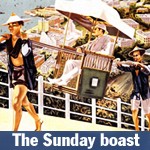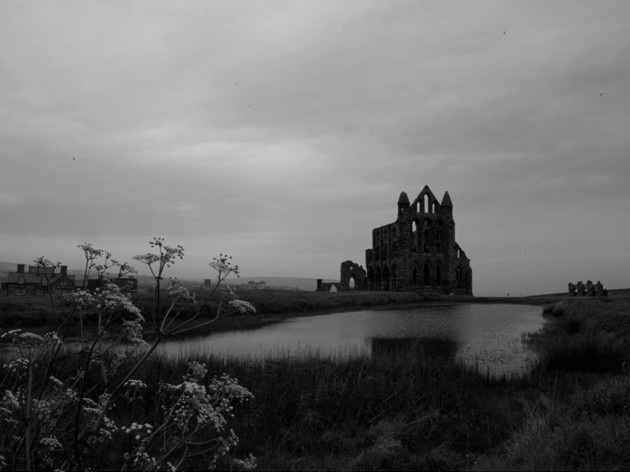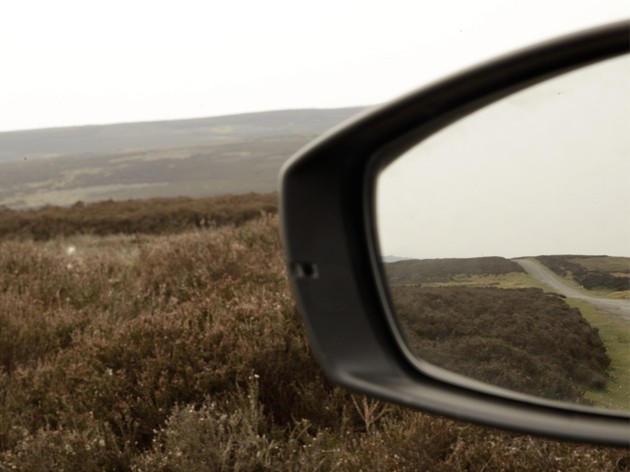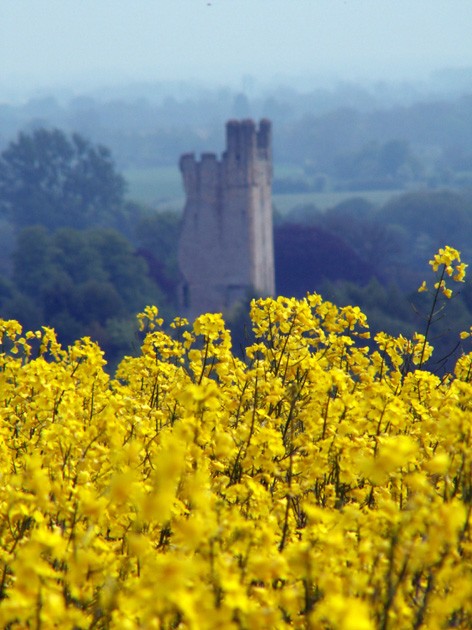 Freelance writer Troy Wilkinson writes: The requirements were simple: A bloke weekend with a close mate, somewhere in Europe we’d both never been, easily accessible for both of us, preferably warm and exotic. Quite how we came up with Yorkshire is a bit of a mystery.
Freelance writer Troy Wilkinson writes: The requirements were simple: A bloke weekend with a close mate, somewhere in Europe we’d both never been, easily accessible for both of us, preferably warm and exotic. Quite how we came up with Yorkshire is a bit of a mystery.
But perhaps I’m being a bit harsh on England’s north. After all, during his two years living in London back when we were in our twenties, my companion Paul succinctly summarises the extremity of his English travels as “Luton in the north, Gatwick in the south, Stansted in the east and Heathrow in the west”, whilst my previous experience with Yorkshire was limited to a brief stop once in the centre of Leeds. That makes it a tick in the ‘never been’ category.

England is an easy and normally inexpensive hop from Switzerland for me, whilst Paul had returned with his English wife to visit the UK for a wedding, and after leaving his in-laws’ place and driving a couple of hours north on the A1 we were in our chosen region before well lunch time. Chalk that one down for ‘easily accessible’.
The sun was shining (more or less) through the clouds and the expected temperature was getting up towards twenty degrees, so considering it was early May that gets a seasonably adjusted pass for effort on the ‘warm’ constraint. Lastly, while picking up supplies in a supermarket in the town of Thirsk we purchased some bottles of beer infused with banana, and the mature aged check-out chick finished every single sentence with a cheery “my luv”. I’d say that counts as exotic.

Yorkshire’s two great National Parks are the Dales and the Moors. We’d opted for the latter, mostly due to its proximity to the coast, and only a couple of miles out of Thirsk we entered the North York Moors National Park. One of the things I’ve immediately noticed about National Parks in the UK is that they are very different to those in Australia. British National Parks look very much like the countryside around them — there are busy arterial roads, working fields, indeed whole villages and towns located within their borders. Life appears to go on inside the national parks in the same way as outside them. If it weren’t for the welcome signs on the roadside, I’d never know I was in one.
We made to cross the entire length of the park from south to north, and once climbing past the single street hamlet of Hutton-le-Hole, the English standard “green and pleasant land” changed markedly. To me England is such a crowded place, and with the dense population and other pressures on the land I’d thought it impossible to escape the tell-tale signs of civilisation — regular vehicular traffic, buildings, power lines and the like — and really feel like I could get away from it all. But now I ate my words.

Reaching a plateau, the wild, desolate and windswept moors spread out flat all around us. Other than the narrow ribbon of bitumen we were driving along, there was no other sign of man’s attempted taming of the earth in any direction we could see, and the views spread out across the plateau for miles. I stopped the car for a short while and the only sound we heard was the wind whistling through the stark brown heather.
But I hadn’t stopped just for the serenity — I have a bladder the size of a serial philanderer’s conscience. Oh, the adventures I have had while travelling when, just like a dog, I somehow have the urgent and immediate need to mark the territory as I roam. And this time I just happened to be busting for a leak in quite possibly the only piece of England with no trees, fences or hedges to hide behind. But that was OK, because as it turned out there wasn’t anyone else passing to have to hide from.
Once back on our way in the car, just as I was getting accustomed to the unexpected solitude of this wilderness, rolling green hills and valleys dotted with livestock suddenly returned, and we met a busy A road which would take us to the coast. England really is a compact little spot, and it’s amazing to see the variety of timeless landscapes that have been packed into its small size.
And so to an overnight stop in Whitby, a town perched above coastal cliffs and spilling down the hillsides either side of the mouth of the Esk River. Though still dominated by the crumbling eleventh century abbey standing sentry on one exposed bluff, there have been a lot of changes from Whitby’s time as a monastery and small fishing village through to the elegantly fading seaside resort of now.

On the opposite headland, across the river mouth from the abbey, were a couple of reminders of the interim centuries. The first was a pair of whale ribs that harked back to the days when the town was a whaling port. Right beside that was a statue of James Cook, to commemorate the Yorkshire man who arrived in Whitby at the age of 18 to start an apprenticeship in the merchant navy in 1747, as well as the ships he later went on to command in his famous exploratory voyages in the Pacific a couple of decades later (both HMS Endeavour and HMS Resolution were originally built in Whitby as coal carrying cargo vessels before being purchased by the Royal Navy). Cook’s statue stands with a rolled up parchment in his left hand and a compass in his right, which I’d like to think of as a subtle lesson that, while a compass might create some mischief as a weapon in the hands of a troublesome schoolkid in a boring maths class, it is no match against a tribe of angry Hawaiians.
Beyond these monuments and down a steep embankment was the empty sandy beach. With the whipping wind and intermittent drizzle it was easy to see why, once the age of affordable jet travel allowed, beach-bound Brits have buggered off to the warmer climes of the Mediterranean for their summer holidays in their millions. Though even today a stoic remnant stay on, winding down by reading the papers and knitting whilst sheltering away from the elements in their brightly painted dressing sheds. Never let it be said that Yorkshire folk are not a hardy bunch. And that seems as true today as it must have been a thousand years ago.
This is an edited version of an article that first appeared on Troy’s blog Troy’s Gone Walkabout.







Crikey is committed to hosting lively discussions. Help us keep the conversation useful, interesting and welcoming. We aim to publish comments quickly in the interest of promoting robust conversation, but we’re a small team and we deploy filters to protect against legal risk. Occasionally your comment may be held up while we review, but we’re working as fast as we can to keep the conversation rolling.
The Crikey comment section is members-only content. Please subscribe to leave a comment.
The Crikey comment section is members-only content. Please login to leave a comment.